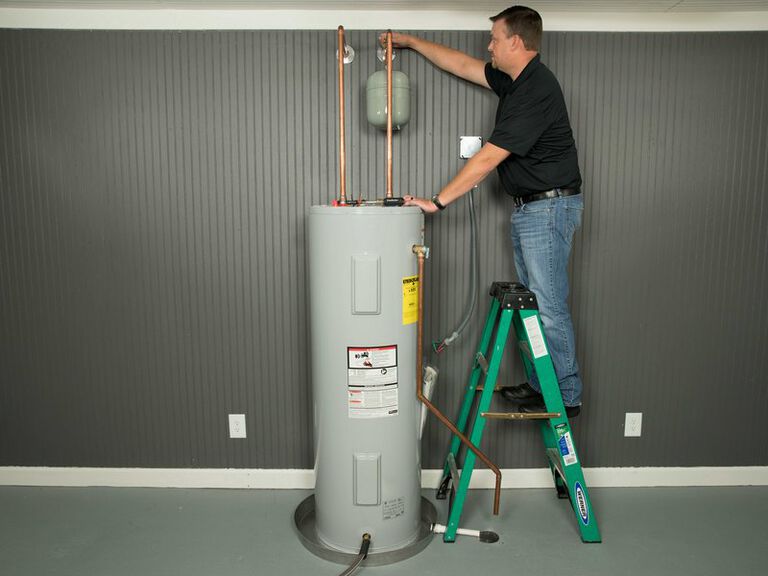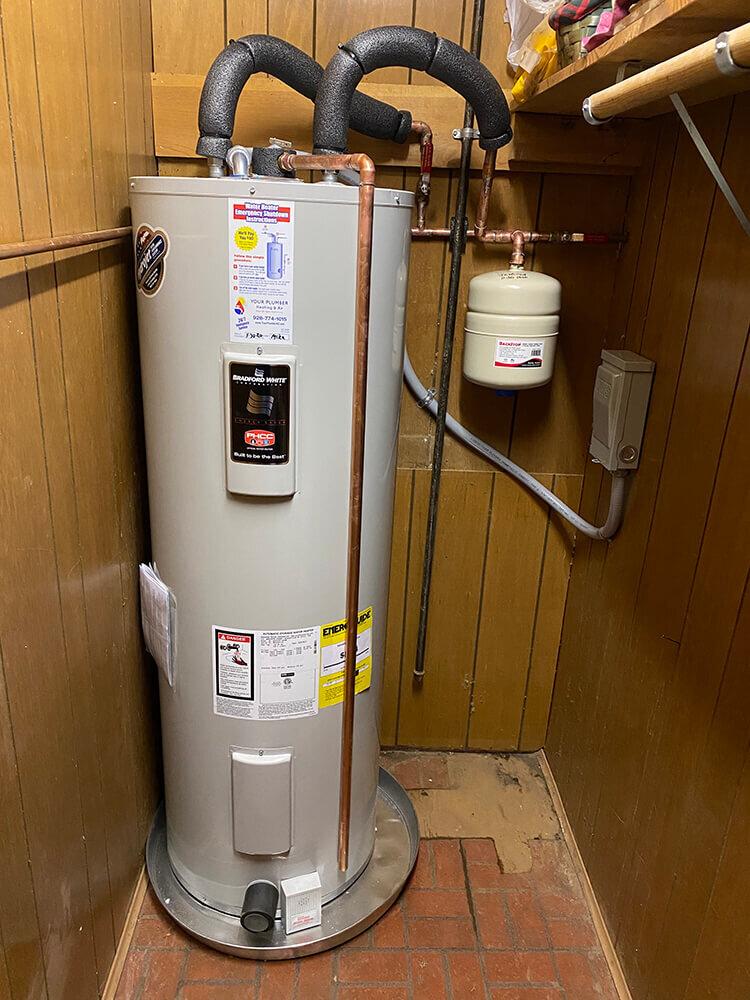Certified Gas Leak Repair for Your Peace of Mind and Comfort
Wiki Article
Total Overview to Water Heating UnitInstallation and Substitute
Understanding the details of water heating unit installment and replacement is critical for homeowners looking for to ensure effectiveness and dependability in their hot water supply. From choosing the proper type and dimension to carrying out a seamless installment procedure, numerous factors should be thought about to avoid typical risks. This overview will certainly supply you with the necessary steps and understandings to navigate the complexities of this home enhancement job, while likewise emphasizing essential upkeep methods that can lengthen the life of your system. As you discover these facets, you may locate yourself reassessing your present configuration and determining areas for enhancement.Kinds of Hot Water Heater
When considering hot water heater installation and replacement, it is crucial to understand the numerous types of hot water heater offered on the market. The most usual types include storage tank water heating systems, tankless water heating systems, heatpump hot water heater, and solar water heating systems.Tank hot water heater are conventional systems that save a particular quantity of warm water, making them readily offered when required. They are typically less costly ahead of time yet might sustain higher energy prices with time because of heat loss. In comparison, tankless water heaters give hot water as needed, eliminating the demand for storage. They are power efficient and can save room, however their first expenses are generally greater.
Heatpump water heating units make use of electricity to transfer warm from the air or ground to warmth water, offering considerable power financial savings but needing even more room and specific setup problems. Solar water heating systems harness solar power to heat water, providing a green choice with possible lasting cost savings, although they typically require a backup system for gloomy days.
Recognizing these alternatives ensures informed choices pertaining to setup and replacement, catering to specific demands and choices.
Selecting the Right Dimension
Choosing the suitable size for a water heater is vital to make certain ideal efficiency and performance. A device that is too little will battle to satisfy household needs, resulting in inconsistent warm water accessibility and increased power consumption. On the other hand, a large water heater can cause unnecessary power waste and higher energy expenses.To determine the ideal size, think about the household's optimal hot water use. This can be calculated based upon the number of occupants and their regular warm water demands. A household of 4 might call for a water heater with an ability of 50 to 80 gallons, depending on the use patterns, such as simultaneous showers and washing.
In addition, analyze the healing price, which measures exactly how promptly a heater can renew warm water after it has been utilized. For tankless versions, concentrate on the circulation price, determined in gallons per minute (GPM), to guarantee it fulfills the household's simultaneous need.

Installment Process Review

Following, the old system needs to be separated and eliminated, making sure to follow neighborhood codes and policies relating to disposal. When the old unit is out, the brand-new hot water heater can be positioned in area. This step entails attaching the water system lines, making certain that all fittings are protected and leak-free.
After establishing water connections, it's necessary to link the power supply, whether electric or gas, complying with the maker's directions thoroughly. Once all links are made, the system must be loaded with water, and the power can be transformed back on. It's vital to check for leakages and guarantee the water heating system is functioning correctly before finishing the setup process.
Typical Setup Blunders

Another constant error is overlooking to adhere to regional codes and guidelines. Stopping working to stick to these requirements can not only result in safety and security hazards yet might also result in pricey fines or the demand for expensive reinstallation. Furthermore, incorrect venting click for more info is a vital concern. Poor air flow can trigger hazardous gas build-up, positioning serious wellness threats.
Stopping working to safeguard links or utilizing the wrong type of fittings can lead to leakages and water damage. By avoiding these usual installment errors, property owners can guarantee their water heating system operates securely and successfully, making best use of performance and long life.
Upkeep Tips for Long Life
Appropriate maintenance of a water heating system is essential for its long life and optimal efficiency. Routine evaluations and maintenance can avoid pricey repair services and extend the device's lifespan. Begin by examining the temperature setup; it ought image source to generally be established between 120 ° F and 140 ° F for optimum energy performance and safety.Every 6 months, flush the container to remove debris accumulation, which can harm heating performance and trigger deterioration. To do this, transform off the heater, attach a hose pipe to the drainpipe valve, and let the water run till it is clear.
When they are worn away,Anode rods must be examined each year and replaced. These poles assist prevent storage tank rust by drawing in destructive components in the water.
In addition, check the stress alleviation valve consistently to ensure it is operating appropriately. This shutoff is essential for protecting against too much pressure buildup within the container.
Finally, consider setting up an expert upkeep check every few years for complete evaluations and maintenance. By adhering to these maintenance ideas, property Continued owners can significantly improve the efficiency, safety and security, and life expectancy of their hot water heater, making certain reputable warm water for many years ahead.
Conclusion
In final thought, appropriate installment and maintenance of hot water heater are essential for making sure performance and durability (drain cleaning). Choosing the ideal type and size, adhering to installation standards, and staying clear of typical errors considerably add to optimum efficiency. Regular upkeep checks and specialist servicing help receive performance and avoid costly fixings. By recognizing these necessary elements, homeowners can attain a dependable warm water supply while lessening prospective issues associated with hot water heater operation.Understanding the details of water heating unit installment and replacement is critical for home owners seeking to make certain performance and reliability in their warm water supply.Storage tank water heaters are standard systems that keep a particular quantity of hot water, making them readily offered when needed. In contrast, tankless water heating systems offer warm water on demand, removing the need for storage. Picking a water heating unit that is either too little or too big can lead to inefficiencies, resulting in poor hot water supply or excessive power consumption.
By recognizing these important facets, homeowners can accomplish a reliable warm water supply while reducing prospective concerns related to water heating unit procedure. plumber Denton.
Report this wiki page